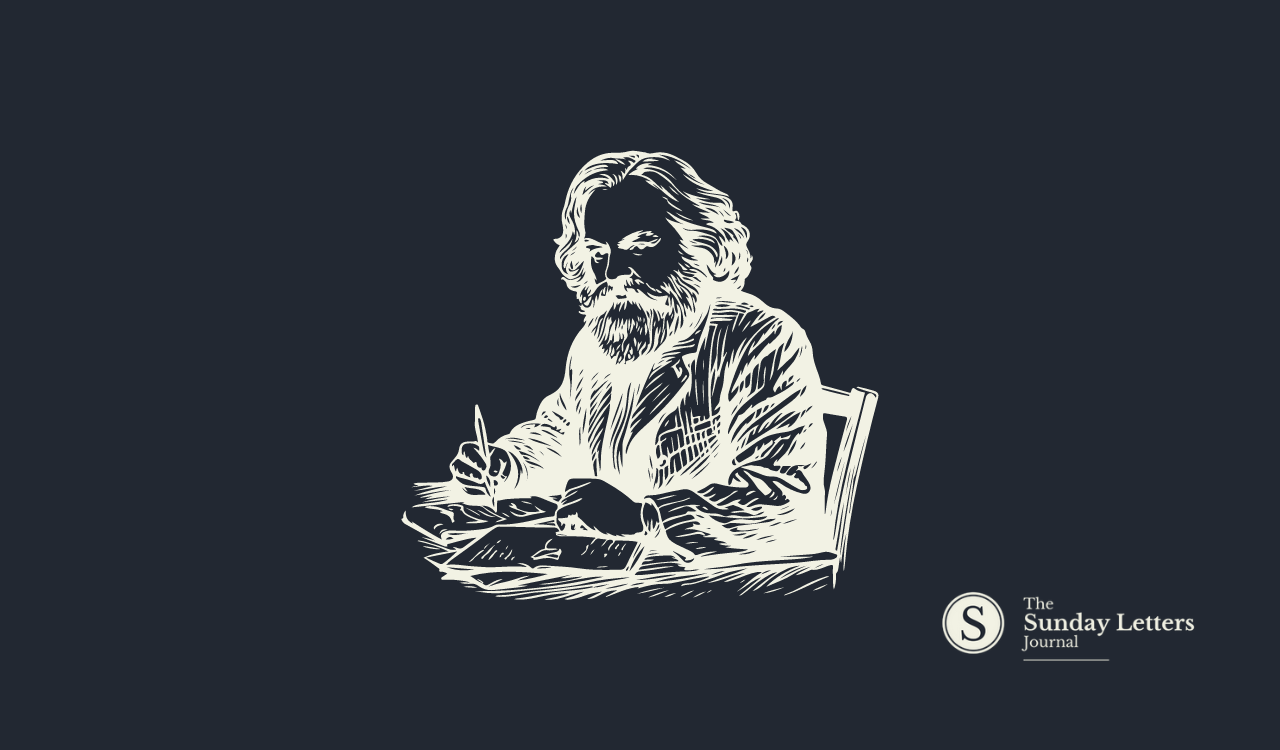Marx: Why Do We Work?
A philosophical perspective on the question of daily work as an aspect of human nature or a burdensome part of life
This is The Sunday Letters Journal; thanks for being here. Today’s essay on the philosophy of work is by philosopher Dmitri Belikov and is free to read. If you enjoy this work and other content here on Sunday Letters, consider becoming a paid subscriber or offering a one-off tip.
The emergence of work can be traced back to the earliest human societies, and the concept of work has been a fundamental aspect of human existence throughout history. But why do we work? Perhaps, like many other aspects of our life, the question is permeated with ambivalence: is work an essential part of our human nature, or is it just a means to an end?
According to Sean Sayers’ essay on Marx and human nature (2005)1, many people would say they work only to earn a living and meet their basic needs. Work, for them, is an unpleasant toil. If they had a chance not to work, they would not work a day in their lives. In philosophy, such an attitude toward work is central to the so-called ‘instrumental view of work’ - a theory whose proponents regard work similarly: unpleasant toil, merely a means to an end, and not an end in and of itself.
According to Sayers, this view is, at least implicitly, adopted in many traditional philosophies. For example, Plato and Aristotle consider a fully human life to be the life of reason. The life of reason, in turn, requires being free from physical labour, which they regard as a ‘lower’ order of human activity that addresses only basic needs. Immanuel Kant, too, sees human beings as primarily rational, and physical nature as a lower, or ‘animal’, aspect of our being. The philosophy of hedonism is another example. According to the hedonistic perspective, pleasure-seeking and pain-avoiding are the sole motive forces of human life. Thus, being unpleasant toil, work is to be avoided wherever possible. In other words, work is not considered a part of human nature but rather an unpleasant part of human life.
Karl Marx presents an opposing view. He suggests that work is not something alien to human nature but is an essential part of it, and argues that human beings are not only creatures of need and desire. As human beings, it is necessary to actively exercise our powers and overcome obstacles to be productive and creative – this brings us a sense of satisfaction and fulfilment. It should be noted, however, that philosophical traditions mentioned—those adopting an instrumental view of work—do not deny that human beings are productive and creative but rather that this productivity and creativity lie in the domain of reason. Conversely, for Marx, productivity and creativity are also in the material domain.
Another point Marx makes is that work is a source of self-realisation. Through work, we embody our powers and capacities, or our character, in external things, the objects of our creation. In the object thus created, we can recognise our own characteristics, our self. German philosopher Friedrich Hegel rather nicely illustrates this point2
Man brings himself before himself by practical activity, since he has the impulse, in whatever is directly given to him, in what is present to him externally, to produce himself and therein equally to recognise himself. This aim he achieves by altering external things whereon he impresses the seal of his inner being and in which he now finds again his own characteristics. Man does this in order, as a free subject, to strip the external world of its inflexible foreignness and to enjoy in the shape of things only an external realisation of himself.
Georg Wilhelm Friedrich Hegel | Philosopher
However, Marx agrees that, more often than not, work seldom provides this satisfaction and fulfilment. According to him, contemporary work is merely a means to an end due to alienation. ‘Alienation’ refers to a condition in which individuals feel disconnected, estranged, or separated from the products of their own labour and the process of labour itself. Thus, Marx argues that people are not completely wrong to see it as unpleasant toil; what is wrong is the view that work must necessarily be like this. ‘alienation’ implies that work can be ‘unalienated’ and, in turn, be the source of satisfaction and fulfilment.
We can see that regardless of the view we adopt—the ‘instrumental view’ or Marx’s view—the reality is that contemporary work is often an unpleasant toil. Many work only to meet basic needs and would prefer to avoid such work if they could. That is not to say that they would avoid doing anything at all. After all, if Marx is right about our human nature as creative and striving to exercise power over and transform the natural environment, then people would naturally find an outlet for their creativity.
As it stands now, however, not many people, unfortunately, can allow themselves to enjoy their ‘natural creativity’ and cut their ties with unpleasant work. The risk is too high: can they be sure that their creativity and something that they enjoy doing will allow them, at the very least, to earn a living and meet their basic survival needs? Some people do manage to ‘unburden’ themselves in this way, but for many others, it remains as something ‘unreal’, beyond their reach, a pure and unrealisable dream.
References
Sayers, S. (2005). Why work? Marx and human nature. Science & Society, 69(4), 606-616.
Hegel, G. W. F., Miller, A. V., & Findlay, J. N. (1977). Phenomenology of spirit.


